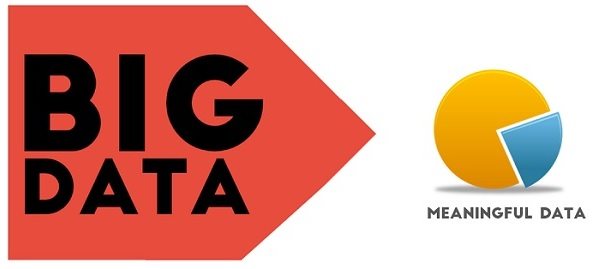
If you have been following all the buzz news in the IT sector for a while, then you might have been hearing about Big Data every now and then. Big Data has virtually outpaced every other technology in terms of making its impact felt across different industrial and consumer sectors. But before we christen Big Data as the King of IT, there needs to be a clear understanding of what exactly makes Big Data such a darling to IT. It is not the sheer size of data that is being generated by Big Data applications that makes it important, but what decision makers are capable of achieving with the quality information that is up for grabs, is the bull’s eye for big data.
Consider a simple example of an e-commerce website like Amazon using Big Data to drive sales and customer loyalty. A big data tool churns out information say, on a particular month, 50 million unique shoppers made purchases on its site globally. Well, this statement is good enough for a marketing phrase, how does it help Amazon improve their balance sheets? The data extracted by these tools become relevant only if they are able to supply insights for business stakeholders to take new decisions. For example, if the data generated included sales of a particular product or line of products in a particular area or geography and also the frequency of sales on normal days and on holidays would be instrumental in Amazon’s marketing strategies. Their marketing teams can come up with tailored campaigns targeting areas that have shown an increased affinity for certain products and thus draw more revenue. This is where Big Data proves to be big. Having a large set of unorganized or cluttered data is in no way going to be of use to stakeholders.
Organizations in all major consumer as well as government sectors are willing to burn holes in their pockets for big data applications. This is evident from several reports especially the recent Ovum research which shows that the big data market will grow by 50% through 2019 which is a six-fold rise compared to 2015. But just because there are plenty of big data applications out there, it never implies you will always find a good implementation partner for your business or use case. Everyone likes to talk about the success stories and accomplishments made possible by Big Data, but once in a while it is good to see the other side of the story for a reality check. Big Data has failed a good number of times as well and sometimes miserably. One of the biggest examples was the failure of Google Flu Trends which the search giant marketed as a flu prediction system that was more efficient than the best available government predictions. Google used algorithms that utilized data from over 5 years of web logs, searches, flu trends across the US and many more to come up with a robust prediction system. But when put into real time operations, the service drew massive criticism as it failed miserably in its predictions and at times overshot its forecasts by as much as 50% leading to Google being subject to a PR assault by users.
Google’s fiasco is just one amongst the several big flops that wrong big data ecosystems generated and hence this draws us into the need for quality check on big data systems. Ideally both Big Data preachers and their users tend to generalize results obtained by big data tools based on the vendor supplying the tools. For example, Google owns close to 65% of the search market, so we assume they are right always and Facebook has more than a billion active users and hence their forecast models are spot on. Though these companies may offer superior services in big data, they cannot simply be taken for granted.
Big data often comes in from a multitude of data sources which may include statistical and behavioral trends of digital data, sensor-generated physical parameter data, surveyed demographic data, data from natural phenomenon and so on. Decisive actions can be taken only when all this data are combined and sorted to derive meaningful insights. Just like system integration for large scale IT projects, big data definitely needs to be handled with care as wrong combinations can result in wrong analytics and ultimately undesired predictions and results. With areas such as healthcare and nuclear power utilities starting to rely heavily on big data for mission critical decision making, there is hardly any room for errors.
The need for quality check on big data is essential as repeat failures can result in the technology being considered worthless in the long run. Even now, several business leaders, in fact almost 62% of respondents in a survey have favored their own gut instincts over observations made by big data tools for decision making. So more failures in this space can wipe out the good image created by big data in a matter of years and before you know it, the technology may become obsolete.
Raw data obtained is virtually just observational statistics and it is the integrity of the tools that work on the data that really make the difference in today’s big data ecosystem. Over the years, we have invested our time and resources in helping our clients master the art of big data in their business. We have helped them derive profitable returns on their investments and have helped them in decision making at all operational levels. If your business has been in the dark about how to effectively deploy big data at core levels, then feel free to drop us a mail and we will walk you through all the possibilities.
